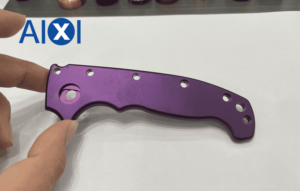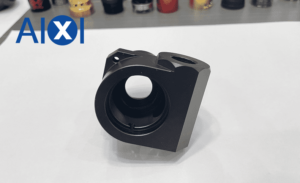How Strong Is CNC Aluminum?
If you’re looking to buy a CNC aluminum cutting machine, you may be wondering how strong it is. Here are a few of the things to consider: 180Mpa, Non-magnetic, Good conductor of heat and electricity, and Machinability. Using the right bit for your CNC aluminum cutting machine is essential for successful CNC aluminum cutting. However, be careful when choosing your bit: it should be optimized for aluminum machining and should not be damaged by heat, vibration, or other materials.
180Mpa
One of the benefits of CNC aluminum is its strong tensile strength. This metal is a great choice for high-stress applications, including structural and aerospace components. CNC aluminum can be easily fabricated and is highly versatile. Its tensile strength is up to 180Mpa, making it an excellent choice for many projects. Its tensile strength is determined by the degree of deformation and the impurity content.
Another benefit of CNC aluminum is its ease of machining. Aluminum is a popular material for CNC machining because it’s strong, easy to work, and inexpensive. It’s a good choice for a number of applications. CNC aluminum machines are available in a variety of strengths, and it’s an excellent choice for machining parts for any application. However, if you’re not sure which aluminum type is right for you, it’s a good idea to find a company that offers samples and does a comprehensive evaluation.
Non-magnetic
Among the many non-magnetic alloys used in CNC aluminum machining, cobalt chromium is one of the most popular. This alloy is biocompatible, corrosion resistant, and has excellent tensile strength. It can be used for a wide range of applications, including precision machine tables and tooling. However, unlike aluminum, cobalt chromium is not magnetic or heat treatable.
While not magnetic, aluminum is still influenced by magnets. When a powerful magnet is held against a piece of aluminum, the moving magnet causes an electrical field to be created. This interaction causes the magnet to fall slowly. Using this property of non-magnetic aluminum, CNC machines can be made with precision and without worry about the safety of sensitive machinery. In addition, non-magnetic aluminum is also much easier to work with, compared to other non-magnetic alloys.
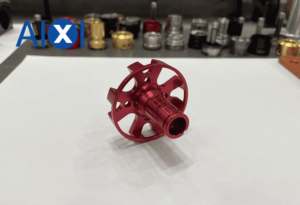

Good conductor of heat and electricity
What makes a material a good conductor of heat and electricity? Generally, metals have a lot of free electrons. These free electrons can move around freely inside a metal, which makes it a good conductor. In contrast, an insulator has no free electrons and cannot conduct electrical current. Fortunately, the laws governing the conductivity of heat and electricity are quite similar. In general, metals are good conductors because they have more electrons than other materials.
As for the conductivity of heat and electricity, metals are the best. Copper is the best conductor of heat, as its free electrons transfer thermal energy. Steel, bronze, and air are poor conductors of heat. Metals are also good electrical conductors, although the former is more expensive than the latter. Wood and air are poor conductors of both electricity and heat. The properties of each material are unique, but the basic rules for heat conductivity remain the same.
Machinability
CNC aluminum is one of the most popular metals used for CNC machining. It’s lightweight, relatively easy to machine, and has many advantages over steel. However, it is important to understand the machinability of aluminum before investing in a CNC machine. Here’s some information to help you determine the machinability of your aluminum part. The more easily it can be machined, the more options you have when it comes to CNC aluminum.
Tool helix angle: A tool’s helix angle is the angle formed between the centerline of the tool and the tangent of the cutting edge. Cutting tools for aluminum generally have higher helix angles than standard end mills. You can find specialized tools with helix angles of 35deg, 40deg, or 45deg. Variable helix tools help reduce chatter and increase material removal rates. Lastly, the clearance angle is an important factor to consider when CNC aluminum machining. Too large of an angle will cause the tool to dig into the work and too small will result in too much friction between the tool and the workpiece.
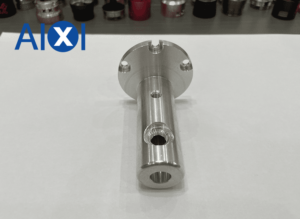
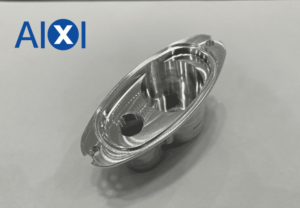
Corrosion resistance
CNC aluminum is one of the most common metals used in CNC machining, but it is not only popular because of its corrosion resistance. CNC aluminum’s surface is characterized by nanopores, which contain corrosion inhibitors and colored dyes that protect against the elements. The material’s high machinability also makes it an excellent choice for CNC aluminum machining because it can be machined to close tolerances without causing significant wear and tear.
There are several different grades of CNC aluminum. The grade of aluminum used varies depending on its corrosion resistance. Aluminum 6061 is the most corrosion resistant grade, while the lower-grade alloys are less corrosion-resistant. While the stronger alloys are less oxidative, they are also more likely to rust or experience other forms of chemical damage. Therefore, it is important to select a material that has a high level of corrosion resistance.
Toolpaths
The toolpaths used for CNC aluminum strength manufacturing can be divided into two types: roughing and finishing. A roughing toolpath cuts along the surface in several Z steps, making it faster to remove material. It is commonly used to create block-out designs, and it gives the shape an increasingly resolved shape with each pass. A finishing toolpath cuts the surface more slowly and shallowly than a roughing toolpath and provides a cleaned-up shape.
The helix angle of a tool is measured by the angle formed between the tool centerline and a straight line tangent to the cutting edge. Cutting tools made for aluminum typically have a helix angle of 35deg, 40deg, or 45deg. Variable helix tools are available for roughing and finishing applications, but a 45deg helix angle is the most efficient for High Efficiency Milling (HEM) toolpaths. Higher helix angles result in faster material removal rates.

 Deutsch
Deutsch Français
Français 日本語
日本語 Español
Español
